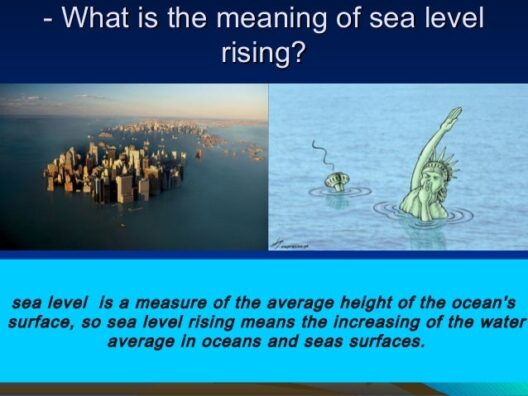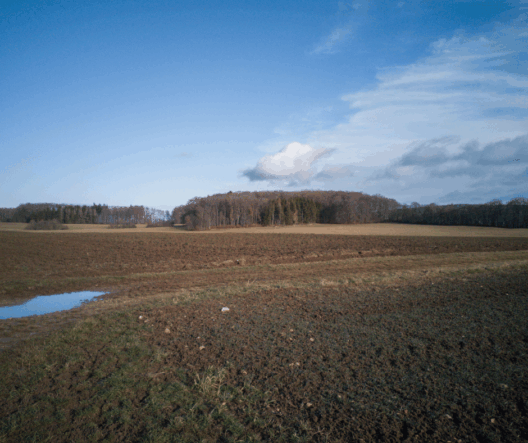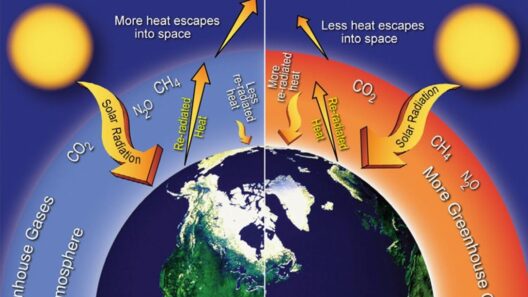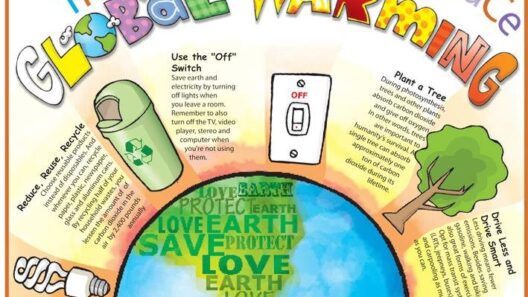Global warming, an insidious phenomenon initiated by anthropogenic greenhouse gas emissions, propels climate change with alarming velocity. Its repercussions transcend mere temperature increases, threading through ecosystems, socio-economic structures, and the very fabric of our society. The daunting landscape of a warmer planet encompasses a cascade of environmental transformations, each compounding the severity of the crisis. This article elucidates the dire consequences of unbridled climate change, inviting a serious contemplation of our impending realities.
As the planet’s average temperature rises, the intricate balance of ecosystems falters. Biodiversity, a vital component of planetary health, experiences unprecedented stress. Species extinction rates are accelerating, with estimates suggesting that we may lose up to one million species in the coming decades due to shifting climates and habitat destruction. These changes unsettle food webs, alter pollinator behaviors, and disrupt vital ecosystem services such as water purification and soil fertility. The aesthetic beauty of our natural environments dims as beloved species, from the iconic polar bear to the vibrant coral reefs, face existential threats.
The relentless thawing of polar ice caps and glaciers serves as one of the most visceral indicators of climate change. Melting ice sheets contribute to rising sea levels, which threaten coastal communities worldwide. With projections estimating an increase of over two feet by 2100, the encroachment of saltwater seeks to swallow coastal cities, displacing millions and straining resources. The erosion of shorelines presents both a literal and metaphorical loss—a diminishment of cultural heritage sites, ecosystems, and livelihoods tied to the ocean’s embrace. With saltwater intrusion, fresh water sources become tainted, stirring up conflicts and mass migrations that reshape societal landscapes.
In tandem with rising temperatures, we witness a quickening cycle of extreme weather events. The intensity and frequency of hurricanes, droughts, and wildfires are exacerbated by climate change. The sheer ferocity of these incidents wreaks havoc on communities, causing economic devastation and loss of life. The palpable chaos of a hurricane’s landfall or the relentless march of a wildfire engulfs not just the environment but also disrupts psychological well-being. Resilience is tested as families grapple with grief, trauma, and uncertainty about the future.
As we survey the agricultural landscape, the effects of global warming manifest poignantly. Crop yields are anticipated to plummet for staple foods in many regions, driven by shifting precipitation patterns and volatile temperatures. Staple crops like wheat, rice, and maize face the dual threat of drought and flooding, creating food insecurity that could propel millions into poverty. The specter of hunger looms, particularly in developing nations where malnutrition and access to food have already posed grim challenges. Our global food systems, intricately woven through trade and cultural practices, risk unraveling under the strain of climate-induced pressures.
Economic ramifications ripple through all sectors as climate change intensifies. The insurance industry, once a bastion of stability, is now grappling with increased claims from natural disasters. Businesses face heightened operational risks, prompting shifts in investment and market stability. The transition to a greener economy necessitates comprehensive adaptation strategies, demanding financial resources that many simply do not possess. Economies reliant on fossil fuels face decline, necessitating a reevaluation of energy policies and workforce transitions that can mitigate societal upheaval.
Public health, too, finds itself entwined in the web of climate change. Air quality deteriorates as higher temperatures exacerbate pollutants, engendering respiratory ailments and heat-related illnesses. Moreover, vector-borne diseases, such as malaria and dengue fever, could expand their reach into temperate regions as changing climates support their proliferation. The psychological toll of increased natural disasters and displacement also mounts, as communities grapple with anxiety, depression, and trauma in the wake of catastrophe. Our health infrastructures—already strained—must adapt to these evolving challenges.
Yet, amid the daunting outlook lies an opportunity for collective action and innovation. Global awareness and mobilization surrounding climate change have surged, as grassroots movements and policy initiatives amplify calls for climate justice and sustainability. Renewable energy technologies, like solar and wind power, are burgeoning, presenting pragmatic avenues to reduce greenhouse gas emissions. Collaboration between nations, industries, and local communities is paramount. Transitioning to a sustainable future hinges upon our ability to unite behind urgent climate action that prioritizes both ecological integrity and social equity.
As we navigate these cascading effects of global warming, our individual choices assume profound significance. From altering our consumption patterns to advocating for robust climate policies, every action contributes to larger systemic change. The time for passive observation has long since passed; we stand at a crucible moment, poised to define the future trajectory of our planet. The path we forge in the coming decades will indelibly mark the legacy we leave for generations, shaping not only the environment but also the interconnected lives of individuals inhabiting this Earth.







